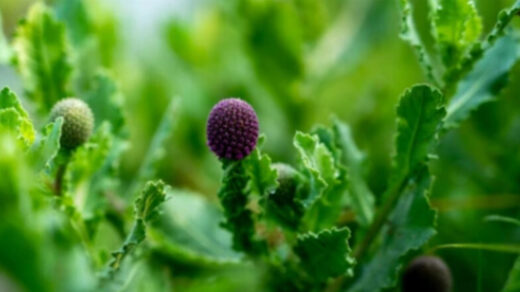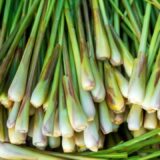How Eat Healthy In Winter As Per Ayurveda?
The Shishira season, also known as winter, arrives from mid-January to mid-March. With every shift in season, nature undergoes significant changes, and these transformations directly influence our physical and mental states.
As human beings, we are intrinsically connected to the rhythms of nature, which is why adapting our lifestyle and habits to the changing seasons is crucial for maintaining balance and well-being.
In Ayurveda, the understanding of the doshas — Vata, Pitta, and Kapha — provides insight into how we can align with the natural world and promote harmony within ourselves. Each season is associated with a specific dosha, and these energies influence both the environment and our bodies.
- Summer (Pitta season) is characterized by the intense heat and moisture of the elements of fire and water, which stimulates the Pitta dosha.
- Autumn (Vata season) is associated with the dry, cool, and windy qualities of the elements of air and ether, which are predominant in the early part of winter.
- As winter progresses, the qualities of Kapha (cold, heavy, moist) start to dominate, gradually overriding the Vata energy, and bringing about more dampness and sluggishness in the body.
In order to maintain our health and well-being during the Shishira season, it is essential to understand the seasonal shifts of Vata and Kapha doshas and adapt our food choices, daily routines, and habits to balance these energies.
By doing so, we can protect our immune system, support our digestion, and keep our body and mind in optimal health throughout the colder months.
Ayurvedic Principles for Eating in Winter
In Ayurveda, the doshas govern our physical and emotional states. Each dosha has specific qualities that are influenced by the elements of nature. During winter, the qualities of cold, dryness, and heaviness dominate, making it a time when Vata and Kapha are most likely to be aggravated.
Vata Dosha: The qualities of Vata are cold, dry, light, rough, and mobile. This dosha is associated with the elements of air and ether, and it governs movement in the body, including circulation, respiration, and elimination.
During winter, the cold, dry air exacerbates Vata, leading to symptoms such as dry skin, joint pain, constipation, and even anxiety.
Vata is also associated with creativity and change, so when it becomes unbalanced, it can lead to mental restlessness and a sense of being ungrounded.
Kapha Dosha: The qualities of Kapha are cold, heavy, damp, and slow, and it is linked to the elements of earth and water. Kapha provides structure, lubrication, and stability in the body.
While winter can increase Kapha’s dampness and heaviness, it also brings a sense of stability and grounding.
However, an imbalance in Kapha during winter can lead to sluggishness, weight gain, congestion, and feelings of lethargy.
Understanding how Vata and Kapha are affected during winter allows us to tailor our diet to balance these doshas, avoiding excess cold, dampness, and dryness, and ensuring that we stay grounded, energized, and healthy.
Role of Agni (Digestive Fire) in Winter
In Ayurveda, Agni refers to the digestive fire, the vital energy responsible for digesting food, absorbing nutrients, and eliminating waste.
A strong Agni is essential for maintaining overall health, and its strength varies with the seasons. In winter, Agni tends to be stronger due to the body’s need to generate internal heat to counteract the cold.
This makes winter an ideal time to consume heavier, more warming foods that require a stronger digestive fire.
Additionally, Agni plays a key role in balancing the body’s energy and metabolism, ensuring that nutrients are efficiently processed and absorbed, which is vital during the colder months.
Why Digestive Fire is Stronger in Winter
During the colder months, the body naturally produces more heat to keep itself warm. This increase in internal warmth enhances Agni, allowing the body to digest richer, denser foods more efficiently than during the warmer months.
The body’s metabolic processes slow down in summer, making it harder to digest heavy foods, while winter’s chill encourages a deeper, more intense digestive process.
Therefore, winter is the time to indulge in foods that are grounding, nourishing, and warming. The season’s cold also triggers the body’s instinct to consume more calorie-dense and fat-rich foods, ensuring energy stores are sustained.
Moreover, the Earth element, which is dominant in winter, promotes stability and strength, allowing Agni to flourish. The earthy, heavy nature of the season aligns perfectly with the body’s need for solid, substantial meals.
As the days grow shorter and sunlight decreases, the body’s energy reserves need to be replenished and protected, making the role of Agni even more essential.
How to Enhance and Protect Agni in Cold Weather
While Agni is naturally stronger in winter, it’s important to nurture it to prevent it from becoming imbalanced. To protect and enhance Agni in cold weather:
- Eat warm, cooked meals: Warm, cooked foods are easier to digest and help maintain the internal heat necessary for optimal Agni. Soups, stews, and roasted vegetables are excellent choices.
- Avoid overeating: Overloading the digestive system can lead to sluggish digestion and an imbalance in Agni. Eating in moderation supports healthy digestion.
- Use warming spices: Spices like ginger, cumin, cinnamon, turmeric, and black pepper stimulate digestion and help keep the digestive fire burning strong. These herbs also help with circulation and warmth.
- Drink warm liquids: Warm teas, broths, and water are all great ways to soothe the digestive system. Herbal teas like ginger, peppermint, or fennel can be especially beneficial.
- Practice mindful eating: Take the time to eat slowly and mindfully, allowing the digestive system to work properly. Avoid distractions and focus on enjoying the flavors of your meal.
- Stay hydrated: Even though it’s cold, the body still requires sufficient water to maintain healthy digestion and flush out toxins. Drinking warm water throughout the day helps to keep Agni steady.
- Incorporate healthy fats: In winter, the body benefits from more fat-rich foods, like ghee, nuts, and seeds, which provide warmth and nourishment for the digestive system.
- Avoid cold and raw foods: Cold foods and beverages can dampen Agni, causing digestive disturbances. Stick to warm, freshly prepared meals for optimal digestion.
By understanding and supporting Agni in winter, we can prevent sluggish digestion and maintain our health and vitality throughout the season.
Cultivating a balanced Agni allows for better immunity, energy levels, and a stronger sense of well-being, helping us feel grounded and nourished through the cold months. With proper nourishment, winter can become a time of vibrant health and deep restoration.
Ideal Foods for Winter (as per Ayurveda)
Winter calls for nourishing, warming, and grounding foods that help balance Vata and Kapha doshas. Ayurveda recommends a variety of foods that provide warmth, stability, and nourishment, ensuring that both the body and mind are supported.
1. Warm, Nourishing Foods
- Soups, Stews, and Porridges: Winter is an ideal time for soups, stews, and porridges. These foods are easy to digest, hydrating, and deeply nourishing, providing warmth and comfort. For instance, a hearty vegetable stew with root vegetables like carrots and sweet potatoes offers grounding energy, while a warm porridge made with oats or rice provides a soothing and nutritious start to the day.
- Cooked Foods Over Raw Foods: In winter, it’s best to avoid raw foods like salads or cold dishes, as they can aggravate the cold and dry qualities of Vata. Cooked meals, especially those that are simmered or slow-cooked, offer warmth and are easier on the digestive system.
2. Spices to Boost Digestion
- Ginger: A powerful digestive aid, ginger is warming and stimulates Agni. It helps combat the cold, damp qualities of winter and is particularly effective for relieving nausea, bloating, and indigestion.
- Cinnamon: Known for its warming and sweet qualities, cinnamon is an excellent spice for winter. It helps regulate blood sugar levels, enhances digestion, and promotes circulation.
- Cardamom: This fragrant spice is soothing for the digestive system and helps to balance excess coldness in the body. It can be added to teas or used in cooking.
- Cloves: Cloves have a warming, stimulating effect that boosts digestion and helps balance excess coldness in the body. They are also useful for alleviating respiratory issues, which can arise during winter.
- Turmeric: With its anti-inflammatory and antioxidant properties, turmeric supports digestion, improves circulation, and helps cleanse the body. It’s a key ingredient in many Ayurvedic dishes and can be used in cooking or as a tea.
These spices not only enhance the flavor of winter meals but also support the digestive system and balance the cold nature of the season.
3. Healthy Fats
- Ghee: Ghee, or clarified butter, is highly prized in Ayurveda for its nourishing and grounding properties. It enhances digestion, lubricates the joints, and supports overall warmth and vitality. It can be added to cooked dishes, soups, or even used for light body massage (Abhyanga).
- Sesame Oil: Sesame oil is warming, grounding, and rich in essential fatty acids. It’s ideal for cooking in winter and can also be used for self-massage to promote circulation and reduce dryness.
- Nuts: Nuts such as almonds, walnuts, and cashews are excellent sources of healthy fats and protein, making them ideal for winter. They help maintain energy levels, support healthy skin, and provide grounding energy.
4. Root Vegetables and Seasonal Produce
- Root Vegetables: Root vegetables like sweet potatoes, carrots, beets, and turnips are grounding, warming, and nutrient-dense, making them perfect for winter. These vegetables help balance the cold, dry qualities of the season while providing essential vitamins and minerals.
- Seasonal Fruits: Apples and pears are excellent winter fruits. They are naturally sweet, hydrating, and provide a gentle source of energy. Cooking these fruits into warm compotes or stews enhances their digestibility and makes them more warming.
5. Grains and Legumes
- Oats, Rice, and Quinoa: These grains are nourishing and grounding, providing a slow-burning source of energy during the colder months. Oats and rice, in particular, are soothing for the digestive system, while quinoa offers a lighter, protein-rich alternative.
- Lentils and Beans: Lentils and beans are high in protein and fiber, making them ideal for winter meals. They provide grounding energy and help stabilize blood sugar levels, supporting overall health and vitality.
Foods to Avoid in Winter (as per Ayurveda)
While certain foods are highly beneficial in winter, there are also foods that should be avoided to prevent imbalances in the body.
1. Cold, Heavy, and Damp Foods
- Raw Salads: Raw foods like salads and cold dishes are too cold and dry for winter, and they can aggravate Vata. They are harder to digest and do not provide the warmth that the body needs during this season.
- Cold Beverages: Cold drinks, including iced water or cold juices, can suppress Agni and disrupt digestion. Instead, opt for warm liquids like herbal teas or warm water.
- Frozen Foods: Frozen foods are cold and damp, which can exacerbate both Vata and Kapha imbalances. Freshly prepared, warm meals are always preferable in winter.
2. Excessive Sugary or Processed Foods
- Sugary Foods: Excess sugar can increase Kapha, leading to sluggish digestion, weight gain, and increased mucus production. It can also dull the digestive fire and make it harder to process food efficiently.
- Processed Foods: Highly processed or packaged foods are often devoid of essential nutrients and are difficult for the body to digest. These foods can lead to toxic build-up (Ama) and increase Kapha, leading to congestion, lethargy, and imbalance.
Tips for Eating Mindfully in Winter
1. Eating Warm, Home-Cooked Meals: Freshly prepared, warm meals help balance the body’s internal temperature, enhance digestion, and provide comfort during the cold months. Opt for homemade meals whenever possible to ensure that you’re nourishing your body with wholesome, seasonal ingredients.
2. Portion Control and Regular Meals: Eating at regular times and avoiding overeating can help maintain a balanced digestive fire. Aim to eat three balanced meals a day, with moderate portion sizes that support digestion without overwhelming the body.
3. Hydration: While it may not feel as thirsty in winter, hydration remains essential. Warm water, herbal teas, and broths can keep you hydrated, soothe the digestive system, and provide warmth.
Additional Ayurvedic Practices for Winter Health
1. Daily Routine (Dinacharya) for Winter: A consistent daily routine is vital in winter to balance Vata and Kapha. Incorporate practices like Abhyanga (self-oil massage), which supports circulation and combats dryness, and ensure adequate rest to maintain energy and vitality.
2. Herbs and Supplements for Winter: Ayurvedic herbs such as Ashwagandha, Triphala, and Tulsi can boost immunity, support digestion, and provide warmth during the winter months.
FAQs
Q1: Why is it important to eat differently in winter according to Ayurveda?
A1: Winter is dominated by Vata dosha (cold, dry, rough), and Ayurveda suggests eating warming, grounding foods to balance these qualities and support digestion and immunity.
Q2: What foods should I prioritize in winter?
A2: Warm, cooked foods like soups, stews, root vegetables (sweet potatoes, carrots), grains (oats, rice), healthy fats (ghee, sesame oil), and warming spices (ginger, cinnamon) are recommended.
Q3: Should I avoid any specific foods?
A3: Avoid raw, cold foods, and excessively dry or light foods, as they increase Vata and disrupt digestion in winter.
Q4: How can warming spices help?
A4: Warming spices like ginger, cinnamon, and cumin stimulate digestion, boost circulation, and combat the cold, dry nature of winter.
Q5: What are the best fat sources for winter?
A5: Ghee, sesame oil, coconut oil, and nuts (walnuts, almonds) are excellent fats to nourish the body and balance Vata during winter.
Q6: How can I stay hydrated in winter?
A6: Drink warm water, herbal teas (ginger, cinnamon), and warm milk to stay hydrated and promote digestion.
Q7: Should I eat more frequently in winter?
A7: Eat regular, smaller meals to support digestion without overeating, which can slow down digestion in cold weather.
Q8: How can I improve my skin in winter?
A8: Include healthy fats in your diet and apply oils like sesame or coconut oil to nourish and protect your skin.
Q9: What role does digestion play in winter health?
A9: Strong digestion (Agni) is crucial; eat warm, cooked foods and use digestive spices to maintain digestive fire.
Q10: Can Ayurveda help with winter mood changes or low energy?
A10: Yes, eat grounding foods, practice yoga, meditation, and maintain a routine to support energy levels and balance emotions.
By adopting Ayurvedic principles for eating in winter, you can nourish your body, balance the doshas, and maintain optimal health throughout the season.


























My daughter introduced me to Indian eating, and I’ve found through practice
and application of it seasonally; that I am relieved mentally and physically. Depression, caused by an inept feeling that something’s wrong, begs honing in on. My belief is that Indian diet science is tuned to nature, and gives relief. That which we can sense, needs real change for what our body goes through, yearly. Affects, in homeostasis, or our circadian cycle; the least understood of all: the effect on the rise and fall of our sap/ hibernation or dormancy period, in winter. We are referred to as the highest food on the food chain; unable to factually escape that we are governed by earth, and her moon; which nourish and cycle our years, no matter our age or gender.
Open your windows for about 10-15 minutes every morning. This will allow to mix the air a bit, so the dry air leaves your room